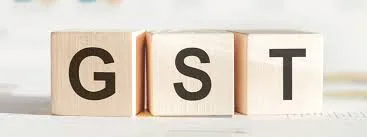M Haziq Pandit
Srinagar, Sept 04: Residents and business owners across Srinagar have welcomed the newly announced Goods and Services Tax (GST) reforms, calling it a major step toward easing household expenses and boosting local economic activity. The reforms, approved on Wednesday by the GST Council led by Union Finance Minister Nirmala Sitharaman, aim to simplify the tax structure and provide relief to citizens.
Effective from September 22, the new GST regime will replace the existing four-slab system of 5%, 12%, 18%, and 28% with two main slabs of 5% and 18%, while a special 40% rate will apply to luxury and ‘sin’ goods such as high-end cars and tobacco products. Many essential goods and services will now attract lower tax rates, reducing costs for consumers. Businesses, too, will benefit from simplified procedures such as automatic GST registration within three days, faster refunds, and easier input tax credit rules.
Residents across the city welcomed the changes, particularly as household essentials — packaged snacks, butter, ghee, shampoo, toothpaste, among other items — will now fall under the 5% GST slab, down from previous rates that were as high as 18%. “It’s been hard to keep up with rising prices. But with the new tax rates, I believe we will see a real difference in our shopping bills. It feels like the govt finally understood the struggles of middle-class families,” said Hamzah Malik, a resident of Jawahar Nagar.
“Household expenses take up a large part of our monthly budget. Any reduction in GST on daily essentials is directly felt in the wallet, and this reform does exactly that,” said Nighat Lone, a homemaker from Soura. “With essential items now costing less, we can save a noticeable amount every month.” Many residents also said the move will make festive shopping more affordable.
Shopkeepers and other business owners expressed optimism, hoping the reforms will stimulate consumption and local trade. “Lower tax rates on household goods will encourage more spending. This will directly benefit small traders like me, as customers will be more willing to purchase essentials,” said Zahid Dar, a kirana store owner in Lal Chowk.
Ajaz Shahdar, President of the Kashmir Trade Alliance, said the GST reforms will provide relief to business owners while boosting local trade. “Simplified compliance procedures will allow traders to focus on expanding businesses rather than getting bogged down by paperwork. Lower tax rates will also directly benefit consumers, as reduced GST on essential goods is likely to translate into immediate savings for households. Overall, these reforms are a step toward a more business-friendly ecosystem, where both sellers and buyers can enjoy tangible benefits,” he added.
Healthcare has also been a focus of the reforms. Life-saving drugs and medical equipment such as diagnostic kits, glucometers, thermometers, and corrective spectacles will now attract only 5% GST, while health and life insurance premiums have been fully exempted. Local healthcare professionals welcomed the move, saying it would make medical treatments more affordable and accessible to residents.
“Healthcare is already expensive, and many families struggle to afford essential medicines and medical devices. Reducing GST on these items will make routine check-ups, preventive care, and critical treatments more accessible,” said Dr Ridha Iqbal, a senior doctor. “This move is not just about lowering costs — it can improve public health, encourage timely medical attention, and ease the burden on healthcare services.”
Residents echoed these views. “My mother has been ill for years and regularly needs expensive medicines. With these tax cuts, it will be much easier to buy what she needs. Families like ours also get some relief from the constant financial stress of healthcare, allowing us to focus more on her care rather than worrying about costs,” said Mohammad Yousuf, a resident of Bemina.






